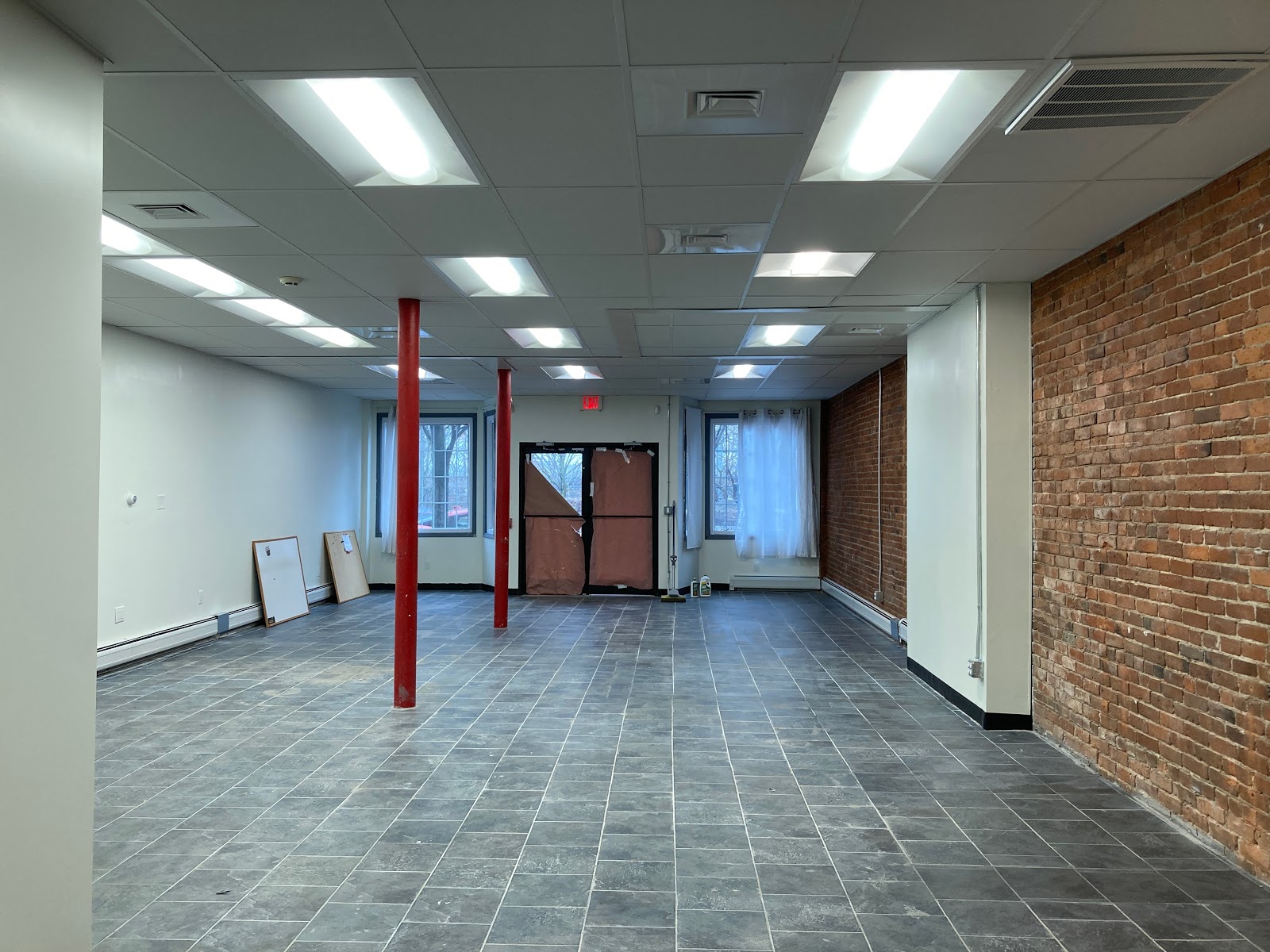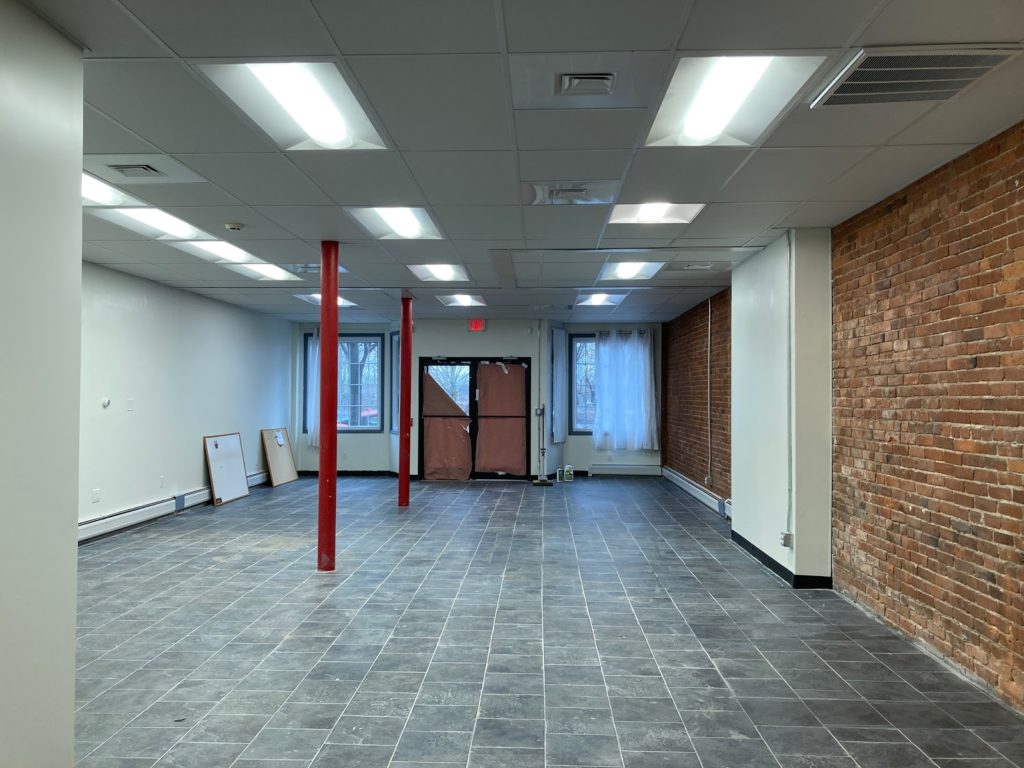Downtown Evening Soup Kitchen buys building on State Street, plans to create hub for homeless services
Downtown Evening Soup Kitchen purchases its own building on State Street, with the goal of creating a new central location for homeless services in New Haven.

Sylvan Lebrun, Contributing Photographer
After years of operating out of church basements, Downtown Evening Soup Kitchen is moving into a building of their own on State Street, aiming to create a centralized location for homeless services in New Haven.
Despite logistical difficulties of fundraising during the pandemic, DESK purchased their new space in early December 2020. This was the culmination of a strategic planning process that began two years earlier. While they currently offer nightly meals in the basement of the Parish House of the Central Church on the Green, DESK plans to incrementally expand their hours and offerings at their independent State Street location. Deepening their current partnerships with other local organizations, DESK plans to create a comprehensive drop-in space and resource center for unhoused individuals. Until DESK has fully transitioned to its new location, which does not yet have a kitchen, the organization will continue using its current Temple Street location for dining operations.
“It had become clear that there were a lot of holes in the network of services for people experiencing homelessness,” said Steve Werlin, executive director of DESK. “So we began having some discussions with our partners, with our clients … and we realized that what our folks really needed was a place where they could access our services more readily, on their own time, on their own terms.”
Since 2017, DESK has worked to broaden access to resources for homeless individuals by collaborating with other local human services providers. The current DESK dining room, in a borrowed church facility on 311 Temple St., is open one hour a day for dinner. Health care workers, street psychiatrists and case managers gather in the dining room to provide aid on site.
DESK’s current list of partner organizations includes Cornell Scott-Hill Health Center, Connecticut Mental Health Center, United Way of Greater New Haven, Liberty Community Services and Columbus House.
“We have great homelessness service providers in New Haven and we’re not looking to reinvent the wheel, we’re not looking to duplicate services,” Werlin told the News.
Columbus House, a local nonprofit dedicated to services for people experiencing homelessness, sends its outreach and engagement workers to the DESK dining room. According to Columbus House CEO Margaret Middleton, its case managers meet with clients at DESK’s evening meals and connect them with resources for long-term planning.
Middleton told the News that she believes DESK’s new location will better facilitate these important conversations, using designated meeting spaces that allow for greater privacy.
“The current location doesn’t have any of that additional space … devoted specifically to outside providers or for doing different types of meetings,” said Middleton.

One of DESK’s major goals in designing its new location is to connect unhoused individuals with as many needed services as possible under one roof, Werlin said.
The first floor will be a dining room with a drop-in center providing basic needs such as food, clothing, toiletries and harm reduction supplies. The second floor will be a resource center with what Werlin calls “next-level services.” Plans for that floor include a clinic for Cornell Scott-Hill Health Center’s street medicine team and office spaces for mental health specialists, outreach workers and case managers from other partner organizations.
“One of the biggest problems facing people in need in New Haven is you have to go to five or six different places to try to get support,” Scott McLean, president of DESK’s board of directors, said. “Go to a soup kitchen and you go to a social worker, then you have to go to a health clinic, then you have to go to the state. That’s like a full-time job, you know. The full-time job of being poor is part of why poverty is so unjust.”
According to McLean, DESK’s board of directors saw the move to State Street as a “launch point” for collaborating with partners to provide comprehensive homeless services and combat this injustice.
The construction on the 266 State St. building, which had a past life as a dog grooming salon, began soon after DESK’s purchase of the building in December. The space was chosen for its physical accessibility, as a street-level building close to downtown New Haven.
However, to make this space truly accessible, a series of longer-term construction projects will be necessary, according to Werlin. DESK is currently fundraising for “extensive renovations” on the building, including installing an elevator and a medical-grade heating, ventilation and air conditioning system. He expects that these will be carried out over the next fiscal year.
Within the next month, DESK plans to open with limited capacity as a drop-in space from 1 to 4 p.m., six days a week. The organization plans to provide activities and a space to get out of the harsh weather, before directing clients to their Temple Street location for dinner.
“We’re going to steadily increase those hours,” Werlin said. “And then the hope is that when we get into the hottest months when we’re really needing some cooling spaces, we’ll be operating at full capacity … during the hottest hours of the day.”
The strategic planning process that led to DESK’s decision to move lasted from 2018 to early 2019. Their initial plan was simply to rent a space and sign a long-term lease — property ownership was not on the table at the time.
This all changed when the pandemic caused real estate prices in downtown New Haven to fall dramatically.
“Suddenly we just found ourselves in a position … with property prices the way they were, to actually purchase a building for the first time in our history,” Werlin told the News. “Within two blocks of the [New Haven] Green, right downtown, we’re right where people need us.”
Although COVID-19 guidelines made usual fundraising strategies — like ribbon cuttings and kickoff events — impossible, DESK experienced what McLean called an “extraordinary” increase in donations after the outset of the pandemic.
This support, and lower real estate prices, allowed DESK to make their big move.
“When crisis hit New Haven, we didn’t close up shop and turn away, and we pivoted and we adapted and we moved forward,” Werlin said. “We said to ourselves, now we are in a position to actually make an even bigger splash than we had intended before. Let’s do it. Let’s do something bold.”
In 1987, Downtown Evening Soup Kitchen first began offering meals three nights a week at churches on the New Haven Green.
Sylvan Lebrun| sylvan.lebrun@yale.edu
Interested in getting more news about New Haven? Join our newsletter!







